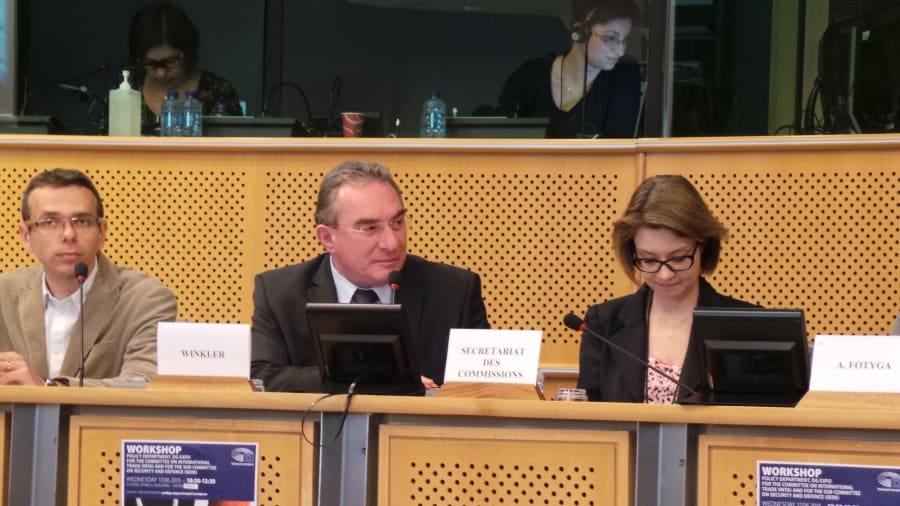European legislators will have to be very careful in the reform of European policies referring to the exports of dual use items, as new measures will have an outstanding impact over large parts of the European industry, outlined Iuliu Winkler, MEP, vice-chair of the International Trade Committee (INTA) of the European Parliament (EP), on Wednesday.
Iuliu Winkler co-chaired, Wednesday, together with the president of the Security and Defence Subcommittee (SEDE) of the EP, Anna FOTYGA, a workshop dedicated to the European Commission´s proposal concerning the reform process in the field of dual-use export controls.
Dual-use items are goods, software and technology normally used for civilian purposes but which may have military applications, or may contribute to the proliferation of Weapons of Mass Destruction (WMD). The EU therefore controls the export, transit and brokering of dual-use items as a key instrument contributing to international peace and security. Dual-use export controls affect research and development (R&D), production and trade of typically high-tech, advanced products across a wide-range of civil industries – e.g. energy, aerospace, defense and security, lasers and navigation, telecommunications, life sciences, chemical and pharmaceutical industries, material-processing equipment, electronics, semiconductor and computing industries, medical and automotive.
In his intervention, MEP Iuliu Winkler further stressed the fact that the implementation of the EU´s Regulation on the control of exports of dual use items falls on the shoulders of national authorities and, from this point of view, the EU has to strive for the highest possible efficiency in its co-operation with Member States. As such, he believes the European Commission must ensure a robust precaution mechanism without hampering legitimate trade flows. The INTA vice-chair considers that reforms in the European system on the control of exports of dual use items have to eliminate its discrepancies, distortions and weakest links.
This EP workshop is part of the European Commission´s revision process as regards the control of exports of dual use items. This process also included a public consultation. The Commission desires to finalize an impact study on this matter by the end of the year, followed by a legislative proposal submission in the first half of 2016.
The European Commission´s decision to revise this policy spurs from the need to modernize the control of EU exports and their adaptation to the fast-pace changes in the technological, economic and political circumstances.
Full-fledged reform of the European dual-use export control system








